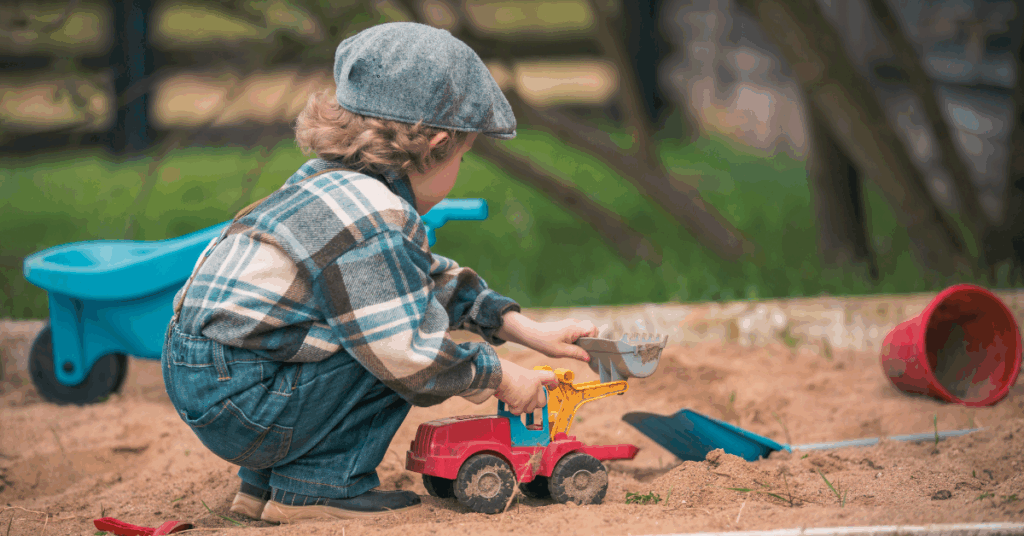Tantrums inspire anxiety in all of us. They often drain us emotionally and leave us with the feeling that something is wrong with our child or with us.
When we see our sweet little child turning into a loud monster, everything turns upside down. And even if we mean well, our reactions to our child’s meltdown might be pretty embarrassing sometimes.
But here is the thing. Tantrums are normal. And, unfortunately, unavoidable. All we can do is control our own behaviour – stay calm and re-connect with the child. It is important to understand that it’s not the time when our child needs discipline. It’s the time when they need our compassionate presence and co-regulation.
We can use these emotional outbursts as opportunities to help our children develop fundamental skills – self-regulation and self-control.
In this post we want to share 5 big ideas that helped us to shift our perspective on tantrums and meltdowns and made our parenting journey a bit less stressful.
Truth #1: Meltdowns and tantrums are normal.
Children come into this world fully able to feel. But they have no idea how to manage their big feelings. In fact, they don’t have enough frontal cortex capacity to control themselves when they are overwhelmed. It takes time for them to build self-regulation skills.
That’s why meltdowns and tantrums are normal. They are not a sign that anything is wrong with your child or with your parenting. That’s actually a sign of healthy child development.
One more important idea here – it’s NORMAL for your child to want things. And it’s also OK to feel emotional about not getting what they want. Our role is to help them grow self-awareness about their feelings and support them in building self-regulation skills. Embrace it.
Truth #2: We respond to meltdowns on autopilot.
We would normally respond to our child’s temper tantrums the same way as our parents did to ours. That’s kind of a “tantrum-response-code” in our brain that’s been written in our childhood. So when our own child gets a meltdown, our triggers are pulled, and we are very likely to respond on autopilot. And even though we might be very mindful about our parenting, we can be caught off guard by our own emotional reactions.
Well, here is the thing – our parents didn’t have access to all the research on child development and neuroscience as we do nowadays. That means that your autopilot most likely needs an upgrade. The good news is that you get in control of your behaviour with the right tools, the right mindset, plenty of practice and time. Explore, be mindful and never stop learning.
Truth #3: Tantrums are a sign that our kids are having a hard time.
One of the fundamental things that every parent needs to understand is that a child throws a fit not because he wants to give us a hard time but because he is having a hard time.
Big feelings, lack of self-regulation skills, logical part of the brain is disconnected – come on, it’s stressful. Keep calm and re-connect with your child to help him feel better.
Remember, it’s not personal, it’s developmental ☺
Maybe recall a day when you had a hard time – how did you want your significant ones to treat you?
Truth #4: Our role during a tantrum is not to calm our child down.
When our child is in a meltdown, all we want sometimes is to have a magic wand to end all that mess immediately. However, it’s always helpful to remember one crucial thing – our role is not to end the tantrum or calm our child down.
Our role is to calm OURSELVES and keep our child SAFE.
So safety first – our child needs to feel safe before we try teaching him any other stuff like self-regulation. In fact, children can’t thrive if they don’t believe their parents can keep them safe. That’s important.
And when we are able to keep our cool when things get hot, we model self-regulation for our child. Children reflect our emotional state, so if we stay calm, we are more likely to help our child to get over the big feelings quicker. One big idea that shifted our perspective is that we cannot teach children to self regulate. Self-regulation is a neuro-developmental process. The only way a child can learn it is by experiencing it from an adult.Take a deep breath and…Practice. Practice. Practice.
Truth #5: Meltdowns are not teachable moments.
When a child is in the middle of a full-blown meltdown, their brain gets totally disintegrated. That’s the time when a child’s lower, more primitive brain (amygdala and hypothalamus) takes over the upper brain (cerebral cortex). And at the same moment, his logical left brain gets disconnected from the more holistic and non-verbal right brain.
So that’s why it’s not a time to teach him a lesson about patience, kindness, wants vs needs or fairness. You cannot simply reach your child with logic and words when he is emotionally flooded. Your child will not hear you. At all.
The only thing we can do is offer our calm presence and wait for the emotional wave to pass to get their logical brain on board.
To conclude, here is one final idea: embrace the fact that you’ll make mistakes when handling your child’s temper tantrums, and your autopilot may kick in occasionally. Be an improvenist and try to handle every next tantrum a bit better than a previous one. Having a plan helps. Reflecting on your reaction helps. Learning from your mistakes helps.
Once you shift your perspective and see tantrums as the OPPORTUNITIES for helping your child building very important skills for adulthood, it all feels a bit less overwhelming.
If you learn how to tackle your child’s tantrums and meltdowns, both you and your child will be equipped for better handling of the emotional outbursts later in life.
But always start with yourself.
Question for you – which idea resonated with you the most?
Loads of love,
Irina & Dawid



